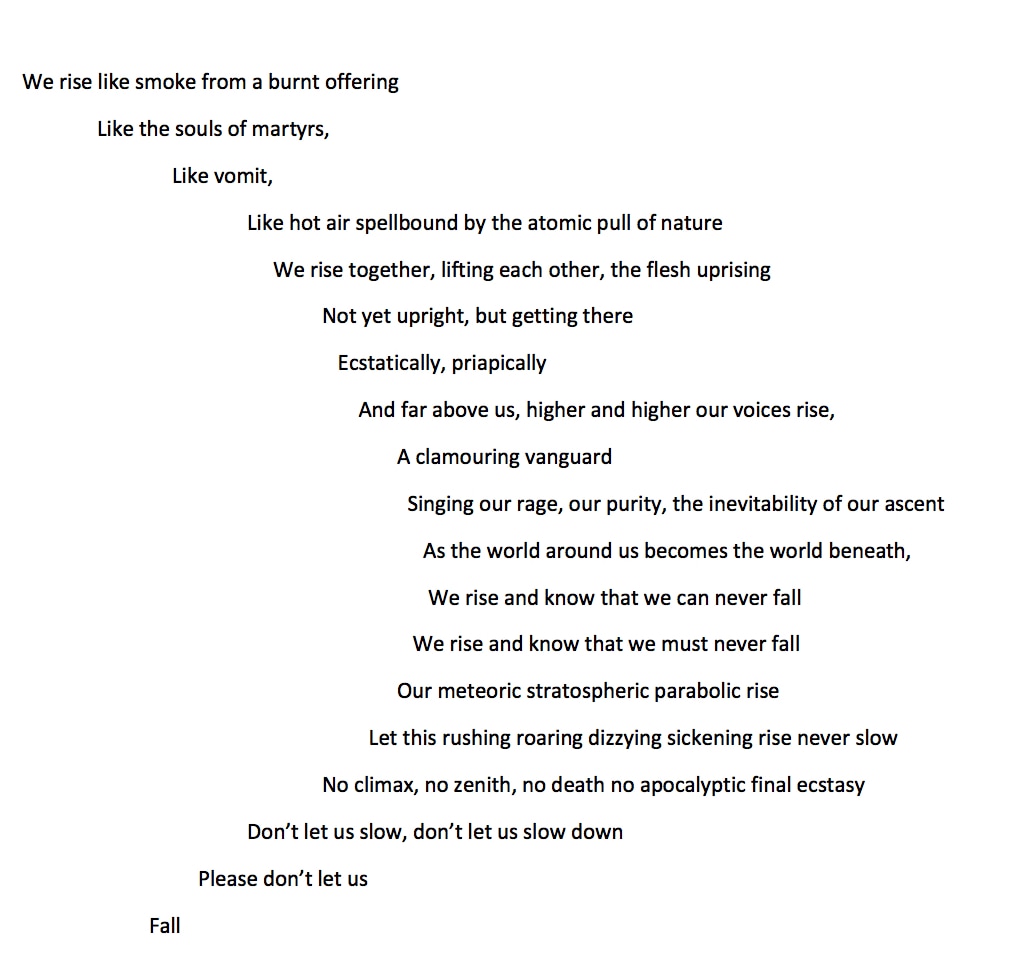|
The philosopher and mathematician David Hilbert once famously wrote about an infinite hotel, with infinitely many guests. He noted that this hotel had a number of surprising properties. Most significantly, he pointed out that if every room in the hotel was full, and a new guest came to the reception and requested to stay the night, it would still be possible for the hotel staff to find space for them – all they would need to do is request that every guest already staying there moved to the room next door (so the guest in room one would move to room two, the one in room two would move to room three, and so on). That way each guest already staying in the hotel would have a room to move into, and the new guest could be accommodated in the now-empty room one.
This was an interesting result from a purely theoretical perspective. It highlighted how strange the behaviour of infinite things can be. Of course, as a practical policy to deal with room shortages, it presented a logistical nightmare, and led to a chain of troubling and unforseen consequences, which is still unfolding to this day. Had Hilbert ever visited the hotel he was talking about in person, and seen the policy put into action, he might have been less inclined to sing its praises. There is just one infinite hotel in the world, presumably the one to which Hilbert alluded. It has infinitely many guests and infinitely many staff members, and infinitely many floors, stretching up and up and up forever. There are inifintely many lifts to take the guests up and down, infinitely many of which are in use at any one time. It is hard to tell how old it is. Some people believe it has always been there, since the start of time. You might be asking why you haven't heard of it, or indeed seen it – after all, an infinitely large building should be hard to miss. In truth, it is entirely possible that you have seen it; you might even have stayed there before, but you probably never realised it was infinite. People used to seeing the world in light of a certain narrative tend to impose that narrative on everything they see. It is often hard to see things for what they truly are, especially things like this. A lot of the guests on lower floors of the hotel think it is like any other finite building. 'Hotel' is the word it uses to describe itself, in big block letters above its entrance on the ground floor, though in reality this is a bit of a misnoma. 'Hotel' suggests a place you stay in for a few nights, maybe on a business trip or a holiday; a place you use primarily for bed and board, and will eventually leave. The first fifty-odd floors serve this purpose. Maybe even the first hundred. But the higher floors are more like permanent apartmenents. After all, the lifts can only move so quickly, and once you get high enough it can take years to get down. Move a little higher, and it will take decades. Keep moving higher still and at some point it will be impossible to get back down again in a human lifetime. For this reason, many people live out their entire lives on the higher floors, and never venture down. Infinitely many, in fact. Of course, it is very likely that most of the guests are not mortal: for them, being centuries or millenia – or units of time too large for us to have a name for – away from the ground floor would not necessarily make travelling there an impossibility. But the journey would be mind-numbingly tedious, and besides, a lot of them have lived their lives there, and have no reason to leave. In fact when you get high enough, 'permanents apartmenents' is not an apt label either: the higher floors would be better described as cities. Whole communities grow up there, with unique cultural practices not found anywhere outside the hotel. They have their own histories, their own mythologies, their own religions. Some of them have elected their own rulers. There are even rumours of ongoing wars between various floors. Interestingly the central management of the hotel are, for the most part, unaware of the goings-on on the higher floors. They are predominantly based on the ground floor, and while they have staff on every level, it takes unfathomable lengths of time for messages to reach the higher ones, and of course the same amount of time again for a reply to come back down again. Moreover, a message relayed from floor to floor by various staff members will keep being relayed forever. It will keep climbing for eternity, passing up between floors long after it was originally sent. Currently there are hundreds of messages still climbing, indefinitely, in their Sisyphean task to reach the top of this unbounded behemouth of a building. Some of them get altered on their way, so that when they reach the higher floors, they sound cryptic and profound. Many academics living up there have spent years debating their meanings. In reality most of the messages started out as something fairly mundane, such as 'staff working in the kitchens should remember to wash their hands before cooking for hygiene reasons' or 'lift 152 is currently out of order' (the latter of these reached a lot of floors long after lift 152 had started functioning again; ironically, on one occassion, the staff member travelling up to the next floor to relay the information actually took lift 152 to do so). This is the problem with infinity. It never stops. Things that are sent on their way in the hotel will continue going forever. Once something has been set in motion, it will just work its way upwards, from floor to floor, for the rest of time. This was how it was when they first trialled their room-shortage policy one December morning. A young businessman in a dark blue suit came to the reception to ask for a room for that evening, and the hotel was full. The manager held a quick meeting with her staff where she asked them to relay the message that every guest should move one door along. It would be a lot of hassle, of course, but the other option was to lose out on custom, and that was untenable to her. The message was sent on its way. The ground floor staff passed it on the guests on the ground floor, and then their counterparts on the floor above, who passed it on the guests on their floor, and so on. Even on the lower floors, this ran into immediate problems. Unsurprisingly the guests were not pleased at the thought of having to pack their bags just to move to the room next door. As metioned abov, some of them were not even aware that the hotel was infinite, and so didn't even understand the point of the exercise. That afternoon a newly-wed couple in room three went to the front desk to complain, and were shortly followed by a family in room ten, an old lady in room twelve, and a small group of students staying in rooms fifteen to seveteen. And that was just during the late morning; the sequence of complaints didn't stop there. In fact, as the manager should probably have anticipated, it didn't stop at all. Ironically, a number of guests left the hotel that afternoon in disgust, leaving a number of free rooms for the young businessman could have been moved into when he arrived back that evening, and thus rendering the whole exercise pointless. But by this point it was too late to apply the brakes. The staff at the hotel were very efficient at relaying information: the message was already five-hundred floors up, and gathering momentum. Guests on higher floors were being told to move to the room next door even though they no longer needed to. Predictably people continued to complain, and some took ages to vacate their rooms, or simply refused to vacate them at all. The process stagnated, and the staff were subjected to an onslaught of verbal abuse, and more guests left. And still the message continued to climb, like flames climbing up a curtain. Soon it reached places where none of the guests had ever set foot outside the hotel. There, it was met with an outrage on an entirely different scale to the frustration from the floors below. Here, on the higher floors, the rooms were people's homes, and understandably the people did not like being told to vacate their homes – particularly since by this point, the original purpose of the room changes had been lost somewhere in the constant chain of re-telling, and the order was delivered to them devoid of context. On floor one-thousand-and-seventeen, it was met with protests and violence; by the time it reached two-thousand it was sparking fully-fledged riots. None of the people up there had ever met the manager – a lot of them were probably not entirely convinced she even existed. They knew her only as some vague (probably malicious) power, living down in the depths of the hotel, who left them to their own devices for the most part, but from time to time would try to reassert her authority by sending up arbitrary and unreasonable demands. For many of the higher floors this demand was the last straw. As the message continued on its trajectory the chaos it reaped grew steadily. People begun to resist the order. Guests united across multiple floors against staff members, who they saw as their oppressors. And still the message continued to travel up. What followed was an unprecedented era of upheavals and uprisings; and, as could be expected, it continued rising upwards forever. The blue-suited businessman was long-gone by this point. He only stayed there one night, then got up early the morning afterwards. He had a bowl of porridge in the ground floor breakfast room, thanked the receptionist for being so accommodating, and left to a conference. By then the message was already two-thousand storeys up; the first sparks of a thousand revolutions had already been lit. After the Broadcast
After the broadcast floats from the wireless, the back door open (just to let a breeze in), to where they hold the faculty parties– after the broadcast goes unheard, with no civil ears to listen, to debate, to mark the essays and come to a smiling impasse– after the police came, concerned, but purely in a provisional sense, for a student (or rather a person of interest), in connection with these disquieting leaflets that crossed their desk, which could, as the follies of bright, engaged young people are known to do, mean so much thrown away–after the student in question was then detained, and this is all there is to be said of it, you understand–after the champagne, and the canapés, and the red velvet cake for the new head of 18th-Century Studies– after the lack of sleep, some phone inquiries, a wall of silence, the bombs that broke it, the rallies, the riots, the children sent away, the crackdown, the uneasy months pregnant with the rough beast, the children home and away again, and now, as now it happens– after the broadcast, and the jazz standards on the gramophone, and the fashionable still-lives bought to hang on their walls– they write invitations to a faculty party. |
Archives |


